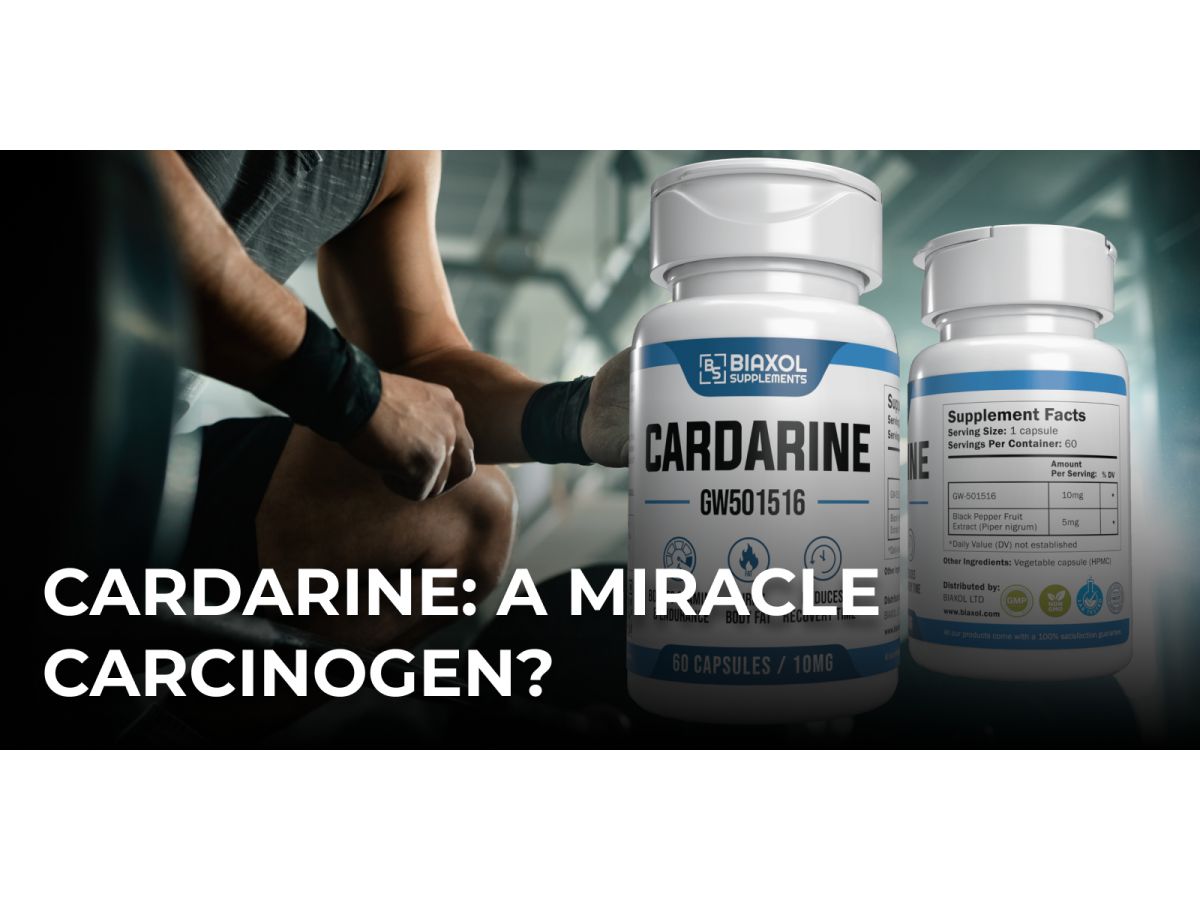Cardarine: a miracle carcinogen?
Cardarine (also known as GW-501516 and Endurobol) is a PPARδ type receptor agonist developed by Ligand Pharmaceuticals and GSK for the prevention of metabolic and cardiovascular diseases. Sadly, it was discontinued after a series of controversial studies in which rats developed cancer.
Cardarine works by activating PPAR-Delta receptors, which in turn upregulate the production of proteins involved in energy consumption and fatty acid metabolism, as well as cardiovascular endurance.
Despite the controversy surrounding it, Cardarine is a compelling drug that has become incredibly wildly popular with bodybuilders and endurance athletes.
Advantages
Fat loss increased
Simply put, Cardarine accelerates fat loss by prioritising the use of stored fat as an source of energy and by modulating various genes involved in fat mobilisation. Although it can certainly help you lose fat, do not expect drastic results.
Increased stamina and endurance
Cardarine can improve endurance and stamina dramatically. Some people claim that it can even double their endurance, so they can run, swim or cycle at a higher intensity for longer periods of time. You will definitely experience an improvement of 30% or more if you respond well to it.
Although this benefit is more attractive to endurance athletes than to bodybuilders, the latter can take advantage of it not only when doing cardio but also when lifting weights, as the increase in endurance will be felt there too. Furthermore, it is clear that the increase in endurance can indirectly improve fat loss by enabling you to train for longer periods of time.
Cholesterol level improvement
White Cardarine will greatly benefit your lipid panel by raising HDL (good cholesterol) and lowering LDL (bad cholesterol) and triglycerides. This advantage makes Cardarine a useful addition to any SARM or AAS cycle as it can compensate for the dyslipidaemia caused by these compounds.
Lower blood glucose levels
Cardarine has been found to lower blood sugar levels and improve insulin sensitivity. In addition to improving weight loss, this may prevent health problems and reduce the negative effects of PEDs such as HGH and its secretagogues.
Fights against inflammation and cancer
Cardarine reduces generalised inflammation and may have anti-cancer properties.
Is there a cancer risk?
Cardarine is notorious for causing cancer in an animal study. This study involved administering Cardarine to Wistar rats for 2 years.
When researching this type of rat, we find that Wistar rats have a life expectancy of up to 3 years and are prone to developing cancer.
There is a lot of debate on the internet about the human equivalent of the dose given to these rats. Some people argue that the equivalent in humans is 200mg/day, while others say it is closer to 40mg/day. The latter is a more accurate estimate.
Whatever the real equivalent dose, it is clear that if you were to take Cardarine, you should not take more than 20mg/day, and you would need to take long breaks and limit its use as much as possible.
Luckily, there is not a single report of Cardarine directly causing cancer in humans, and one study suggests that metformin may inhibit PPARδ agonist-induced tumour growth.
Although shrouded in controversy, Cardarine is a very interesting and almost miraculous drug that remains one of the most favored fat burners and endurance enhancers among bodybuilders and athletes of all disciplines.

